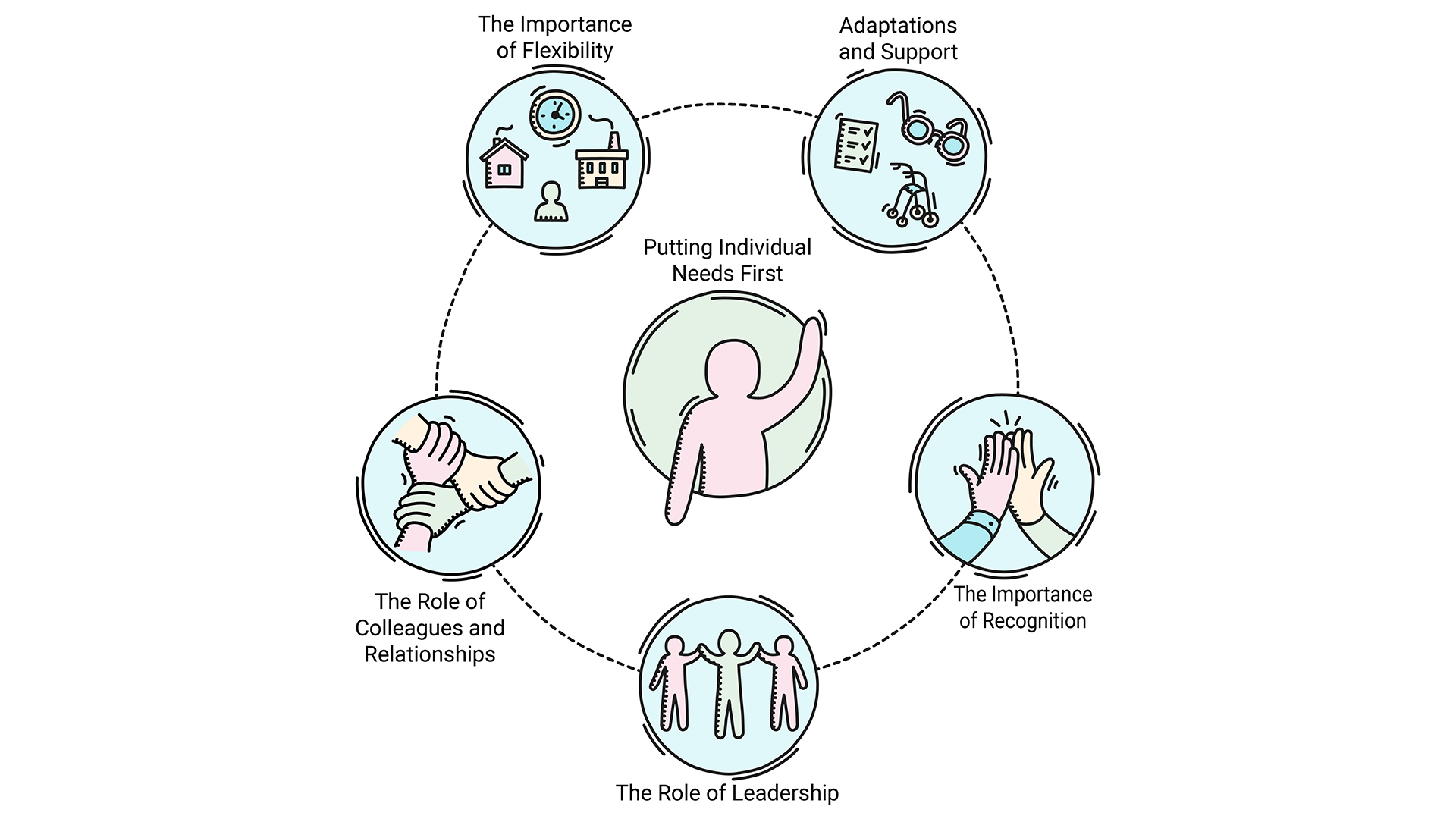Results
The report highlights both challenges and enabling factors within the work environment, as well as how organisational aspects – such as leadership, workplace culture, and opportunities for adaptation – affect the experience of inclusion at work.
The findings show that flexibility, workplace adjustments, and supportive relationships are crucial to creating sustainable and inclusive work environments.
Inclusive Work Environments
To create inclusive work environments, employers need to place the individual’s needs at the centre. Measures should not be based on the type of disability itself, but rather on what the individual requires to perform their job in the best possible way – as illustrated in the model below.

Putting the Individual’s Needs First
Work environment measures must be tailored to the individual’s unique circumstances. A flexible view of work ability – analysing barriers and opportunities in relation to the individual’s tasks and work environment – is essential for achieving sustainable working conditions.
The Importance of Flexibility
Flexible working hours, adapted tasks, and possibilities for remote work can be crucial for employees with disabilities. At the same time, employers need to be attentive to avoid unintentionally creating barriers through standardised solutions.
Adaptations and Support
Access to appropriate accommodations – such as ergonomic aids, technical solutions, and individual support – enhances the ability to perform work tasks efficiently and without unnecessary obstacles. The report shows that such adjustments are often simpler and less costly than many employers assume.
The Importance of Recognition
An inclusive workplace is built on employees feeling valued and involved. Recognition of individual competence and contribution, along with a work climate free from discrimination, are central to job satisfaction and long-term employment security.
The Role of Colleagues and Relationships
Support from colleagues and a workplace culture that encourages openness and collaboration contribute to a more inclusive work environment. When employees have knowledge about disability, stigma can be reduced and a positive workplace culture promoted.
The Role of Leadership
Active and positive leadership creates the conditions for inclusion. Managers who understand disabilities and know how to adapt the work environment play a key role in promoting sustainable working lives for employees.
This report is written by:
Maria Norstedt, Malmö University
Per Germundsson, Malmö University
